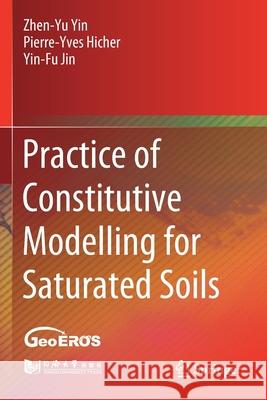Practice of Constitutive Modelling for Saturated Soils » książka
topmenu
Practice of Constitutive Modelling for Saturated Soils
ISBN-13: 9789811563096 / Angielski / Miękka / 2021 / 426 str.
Practice of Constitutive Modelling for Saturated Soils
ISBN-13: 9789811563096 / Angielski / Miękka / 2021 / 426 str.
cena 403,47
(netto: 384,26 VAT: 5%)
Najniższa cena z 30 dni: 385,52
(netto: 384,26 VAT: 5%)
Najniższa cena z 30 dni: 385,52
Termin realizacji zamówienia:
ok. 16-18 dni roboczych.
ok. 16-18 dni roboczych.
Darmowa dostawa!
This book describes the development of a constitutive modeling platform for soil testing, which is one of the key components in geomechanics and geotechnics. It discusses the fundamentals of the constitutive modeling of soils and illustrates the use of these models to simulate various laboratory tests. To help readers understand the fundamentals and modeling of soil behaviors, it first introduces the general stress–strain relationship of soils and the principles and modeling approaches of various laboratory tests, before examining the ideas and formulations of constitutive models of soils. Moving on to the application of constitutive models, it presents a modeling platform with a practical, simple interface, which includes various kinds of tests and constitutive models ranging from clay to sand, that is used for simulating most kinds of laboratory tests. The book is intended for undergraduate and graduate-level teaching in soil mechanics and geotechnical engineering and other related engineering specialties. Thanks to the inclusion of real-world applications, it is also of use to industry practitioners, opening the door to advanced courses on modeling within the industrial engineering and operations research fields.











